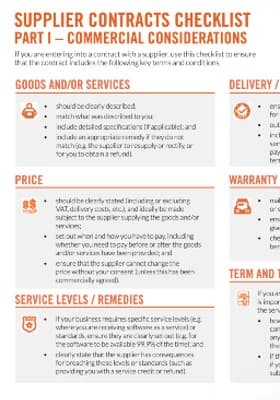Table of Contents
When you run a business, you can encounter all sorts of obstacles. For example, you may encounter a commercial dispute with another company. This is where you disagree on a matter, often concerning a contract you have together. It is best to resolve your commercial dispute as swiftly as possible so that you can continue running your business smoothly. One quick way to resolve a business dispute is through adjudication, resulting in an adjudication decision or award.
This is a frequent way construction companies resolve disagreements with construction contracts. However, sometimes, adjudication enforcement by the successful party is necessary to enforce the adjudicator’s decision. This article will explain how to enforce an adjudication award in a commercial dispute.
What is Adjudication?
Adjudication is a form of alternative dispute resolution (ADR), a method to resolve disputes, including commercial ones. The construction industry primarily uses it for contractual disputes. This is because the law gives them the right to this recourse when a business disagreement arises.
A business can turn to the adjudication process at any point in a commercial dispute. The parties to the dispute decide on an arbitrator or panel of judges and the procedural rules for the adjudication. It is a relatively informal process that takes just 28 days. An adjudicator will hear the dispute and then come to a decision, which will result in an adjudication award.
How Do You Enforce an Adjudication Award?
Adjudication awards are temporarily binding as parties can turn to litigation or arbitration for a final, binding decision. However, parties to adjudication must still abide by the adjudication award.
This does not guarantee the court will enforce it, as it depends on the circumstances of your dispute and award. However, the court will likely enforce the adjudication award unless the adjudicator did something wrong.
Procedure
To enforce the adjudication award, you must issue a claim as per the Civil Procedure Rules in Part 7 and Part 24. We recommend that you ask a solicitor to help you with this. It requires you to:
- fill in a claim form;
- include a witness statement which gives details about the dispute and what the award decision is, and
- (if you choose to) send an Application notice for abridgement of time, which means that the defendant you are enforcing the award against has less time to respond to your claim.
Once you have completed the claim, a TCC judge will give you an enforcement hearing date within three days of receiving it. Depending on court availability, this hearing date is usually 28 days after the order. The judge will also let you know if they require any other evidence and what to do to file an acknowledgement of service. The hearing date is when the TCC judge will enforce the adjudication award if they agree.

Download this free Supplier Contracts Checklist to ensure your contracts will meet your business’ needs.
The defendant, the business you wish to enforce the adjudication award on, may want to defend the enforcement. If so, they may provide evidence and, like you, will have to file a skeleton argument with the court. You do this at least one working day before your enforcement hearing.
Continue reading this article below the formCall 0808 196 8584 for urgent assistance.
Otherwise, complete this form and we will contact you within one business day.
Key Takeaways
If you have a commercial dispute, you may choose adjudication as an alternative dispute resolution to resolve the disagreement. This is something you are likely to select if you are in the construction industry. Adjudication is when an adjudicator makes a temporary binding decision on the dispute. They will make an arbitration award, which may be monetary or an order to do something at a specific time.
The process does not guarantee that the court will enforce the arbitration award. However, they usually will absent scenarios where the adjudicator has made a mistake.
If you need help understanding how an adjudication award is enforced in a commercial dispute in the UK, LegalVision’s experienced disputes and litigation solicitors can assist as part of our LegalVision membership. For a low monthly fee, you will have unlimited access to lawyers to answer your questions and draft and review your documents. Call us today on 0808 196 8584 or visit our membership page.
We appreciate your feedback – your submission has been successfully received.









